Rastaman chants, a central element of the Rastafarian tradition, reflect the rich cultural and spiritual heritage of this Afro-Caribbean movement. Rooted in Jamaica and heavily influenced by Ethiopian Orthodox Christianity, Rastafarianism is a way of life that has captivated the hearts and minds of many worldwide. Rastaman chants are not merely an artistic expression but also a powerful tool for spiritual enlightenment, unity, and social commentary.
This article will explore the history, significance, and various types of Rastaman chants, delving into the role of drumming, common themes, and their influence on modern music.
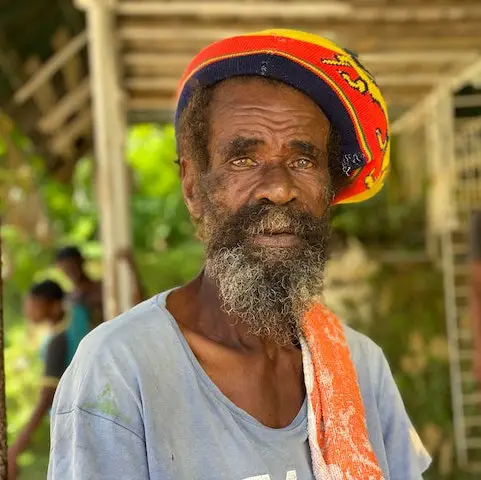
Table of Contents
Introduction
Brief history of Rastafarianism
The Rastafarian movement, or Rastafarianism, is a spiritual and cultural movement that originated in Jamaica during the 1930s. It emerged as a response to British colonial rule and the socio-economic challenges faced by the African diaspora. Rastafarianism incorporates Afrocentric ideologies, Ethiopian Orthodox Christianity, and elements of mysticism.
Importance of chanting in Rastafarian culture
Chanting, or the rhythmic speaking or singing of words and phrases, is an essential aspect of Rastafarian culture. Rastaman chants serve various purposes, including spiritual enlightenment, self-reflection, and social commentary.
Different types of Rastaman chants
Nyabinghi Chants
Nyabinghi chants are considered the most traditional form of Rastaman chants. They are typically performed during sacred gatherings called Nyabinghi Issemblies, where participants come together to chant, drum, and meditate. Nyabinghi chants are characterized by their repetitive, call-and-response structure, which helps to create a trance-like state among the participants.
Groundation Chants
Groundation chants, also known as Binghi Groundation or Grounation, are another form of Rastaman chants. These chants are performed during Groundation ceremonies, which are dedicated to meditation, reasoning, and giving thanks to the Almighty. Groundation chants often focus on themes of unity, love, and spiritual guidance.
Reggae Chants
Reggae chants, sometimes referred to as “conscious reggae” or “roots reggae,” are a more modern form of Rastaman chants that emerged in the 1960s and 1970s. These chants are infused with the rhythms and melodies of reggae music and often incorporate themes of social justice, spirituality, and African identity.
Rastaman Chants
- Bob Marley – “Redemption Song”Old pirates, yes, they rob I Sold I to the merchant ships Minutes after they took I From the bottomless pit
- Peter Tosh – “Equal Rights”Everyone is crying out for peace, yes None is crying out for justice Everyone is crying out for peace, yes None is crying out for justice
- Burning Spear – “Slavery Days”Do you remember the days of slavery? Do you remember the days of slavery? And how they beat us And how they worked us so hard And they worked us in the boiling sun
- Culture – “Two Sevens Clash”I’m gonna send a message to you Two sevens clash It’s gonna be a terrible thing Two sevens clash
- Sizzla – “Praise Ye Jah”Praise ye Jah, I thank you Jah for what you’ve done for me Praise ye Jah, I thank you Jah for what you’ve done for me It’s a blessing, Jah’s love shining on me
- Israel Vibration – “Rudeboy Shufflin'”Rudeboy shufflin’ down in Kingston town Rudeboy shufflin’ down in Kingston town Rudeboy shufflin’ down in Kingston town Trying to put I down
- Midnite – “Mighty Race”Mighty race, rise up inna Ithiopia Mighty race, rise up inna Ithiopia Emperor Selassie I call you to attention Rise up inna Ithiopia
- The Abyssinians – “Satta Massagana”There is a land far, far away Where there’s no night, there’s only day Look into the Book of Life and you will see That there’s a land far, far away
- The Congos – “Fisherman”Row, Fisherman, row Keep on rowing your boat Lots of hungry belly pickney they a shore Millions of them
- Black Uhuru – “I Love King Selassie”I love King Selassie I I love King Selassie I He is the only King of Kings He is the only Lord of Lords
The role of the drum in Rastaman chants
The drum, particularly the hand drum known as the “kete” or “akete,” plays a vital role in Rastaman chants. The drum’s rhythms provide a foundation for the chants
and help to create a sense of unity and togetherness among participants. In Rastafarian culture, drumming is considered a means of communication with the divine and a way to channel positive energies.
Lyrics and themes in Rastaman chants
Repatriation
One of the central themes in Rastaman chants is the concept of repatriation. This refers to the belief in the eventual return of the African diaspora to their ancestral homeland, Africa, particularly Ethiopia. Chants that focus on repatriation often express a longing for freedom, spiritual awakening, and a connection to one’s roots.
Social justice
Rastaman chants frequently address issues of social justice, particularly those affecting the African diaspora. Topics such as poverty, inequality, and racial discrimination are often explored, with the chants serving as a call for change and a reminder of the importance of unity and resilience in the face of adversity.
Praises to Haile Selassie I
Many Rastaman chants include praises to Haile Selassie I, the former Emperor of Ethiopia, who is considered a divine figure by Rastafarians. Chants that honor Haile Selassie I often emphasize his role as a symbol of African unity, leadership, and spiritual guidance.
The spiritual power of chanting
Chanting is believed to have a powerful spiritual effect on both the individual and the collective. Through the repetition of words and phrases, participants can enter a meditative state, allowing for self-reflection, spiritual growth, and a deeper connection with the divine. Additionally, Rastaman chants often evoke a sense of communal energy, fostering unity and strength among participants.
The role of Rastaman chants in modern music
Influence on reggae music
Rastaman chants have had a significant impact on reggae music, with many artists incorporating the themes, rhythms, and messages of Rastafarianism into their songs. Bob Marley, for instance, was heavily influenced by Rastafarian culture and utilized Rastaman chants in his music to promote love, unity, and social justice.
Contribution to world music
Beyond reggae, Rastaman chants have also contributed to the broader world music scene. Artists from various genres have been inspired by the spiritual and cultural aspects of Rastaman chants, incorporating elements into their music and helping to spread the messages of peace, unity, and spirituality worldwide.
Famous Rastaman chant artists
Bob Marley
Bob Marley is perhaps the most well-known artist associated with Rastaman chants and Rastafarianism in general. His music not only popularized reggae but also introduced Rastafarian themes and values to a global audience.
Peter Tosh
Peter Tosh, a founding member of The Wailers alongside Bob Marley, was another influential Rastafarian artist who incorporated Rastaman chants into his music. Tosh’s lyrics often addressed social and political issues, and his powerful voice and stage presence made him a memorable figure in the world of reggae.
Burning Spear
Burning Spear, born Winston Rodney, is a Jamaican roots reggae artist known for his deeply spiritual music and commitment to Rastafarianism. Many of his songs feature Rastaman chants, and his powerful, soulful voice has made him a revered figure in reggae and Rastafarian circles.
Conclusion
Rastaman chants are an integral aspect of Rastafarian culture, serving as a means of spiritual expression, social commentary, and unity. With their powerful messages and captivating rhythms, these chants have not only shaped the Rastafarian movement but also left an indelible mark on reggae music and the broader world music scene. The enduring legacy of Rastaman chants can be seen in the works of iconic artists like Bob Marley, Peter Tosh, and Burning Spear, who have carried the messages of love, unity, and spiritual growth to audiences across the globe.
Frequently Asked Questions
What is the purpose of Rastaman chants?
Rastaman chants serve various purposes, including spiritual enlightenment, self-reflection, and social commentary. They are an essential aspect of Rastafarian culture and provide a means for practitioners to connect with the divine and with each other.
What are some common themes in Rastaman chants?
Common themes in Rastaman chants include repatriation, social justice, and praises to Haile Selassie I. These themes often focus on issues facing the African diaspora, such as racial inequality and the longing for spiritual awakening and unity.
How do Rastaman chants influence reggae music?
Rastaman chants have had a significant impact on reggae music, with many artists incorporating the themes, rhythms, and messages of Rastafarianism into their songs. Notable artists like Bob Marley, Peter Tosh, and Burning Spear have popularized reggae music and spread Rastafarian values through their use of Rastaman chants.
Are Rastaman chants exclusive to the Rastafarian community?
While Rastaman chants are deeply rooted in Rastafarian culture, their influence has spread beyond the Rastafarian community. Many artists from various musical genres have incorporated elements of Rastaman chants into their work, helping to disseminate the messages of peace, unity, and spirituality on a global scale.
See Related Posts

Gregorian Christmas Chants

Love Spell Chants
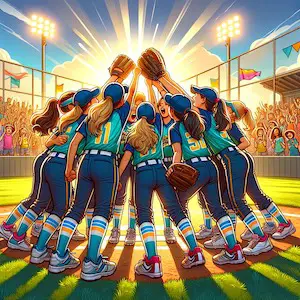
Best Softball Chants for U12
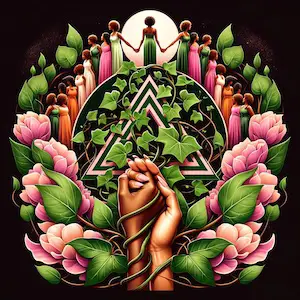
AKA Sorority Chants

Argentina Football Chants

Short Chants and Cheers
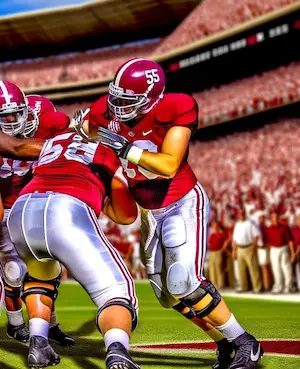
Alabama Football Chants
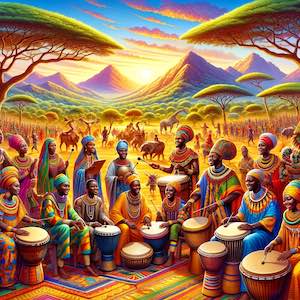
Everything to Know About African Chants

